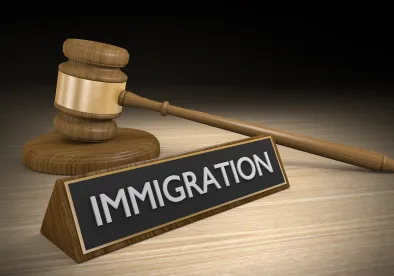On August 28, 2017, the USCIS announced that beginning October 1st, the USCIS will begin to phase-in “in-person” interviews for Employment-Based, Adjustment of Status applicants (Form I-485, Application to Register Permanent Residence or Adjust Status).
Many years ago, the USCIS dropped the in-person interview requirement for most Employment-Based, Adjustment of Status applicants as a means to address backlogs in processing times and because Employment-Based Immigrant Visa applicants presented few security concerns. The USCIS has indicated that the change complies with the March 6, 2017 Executive Order 13780, “Protecting the Nation from Foreign Terrorist Entry in the U.S.,” and is part of the USCIS’s comprehensive strategy to further improve the detection and prevention of fraud and to further enhance the integrity of the immigration system. The USCIS has also stated that it is working collaboratively with other federal partners to develop more robust screening and vetting procedures for foreign nationals seeking immigration benefits to reside in the U.S.
Along with Employment-Based Immigration applications, all applicants for refugee/asylee relative petitions (Form I-730, Refugee/Asylee Relative Petition) for beneficiaries who are in the U.S. and are petitioning to join a principal asylee/refugee applicant will now also be interviewed. Beyond these categories, the USCIS is planning an incremental expansion of interviews for other benefit types.
It remains to be seen how many applicants will be required to have an interview, and if implemented en masse, how the USCIS plans to utilize its resources to handle the large new influx of expected cases as well as to train its Examiners on how to make determinations. If implemented en mass, it is certain to create long additional delays in the completion of immigrant visa applicants. It is also likely to increase the overall cost of an Adjustment of Status application as applicants will need to continue to file extensions of Advance Parole and Employment Authorization Documents along with additional government filing fees while Adjustment of Status application are pending, perhaps for a much longer period of time.




 />i
/>i
